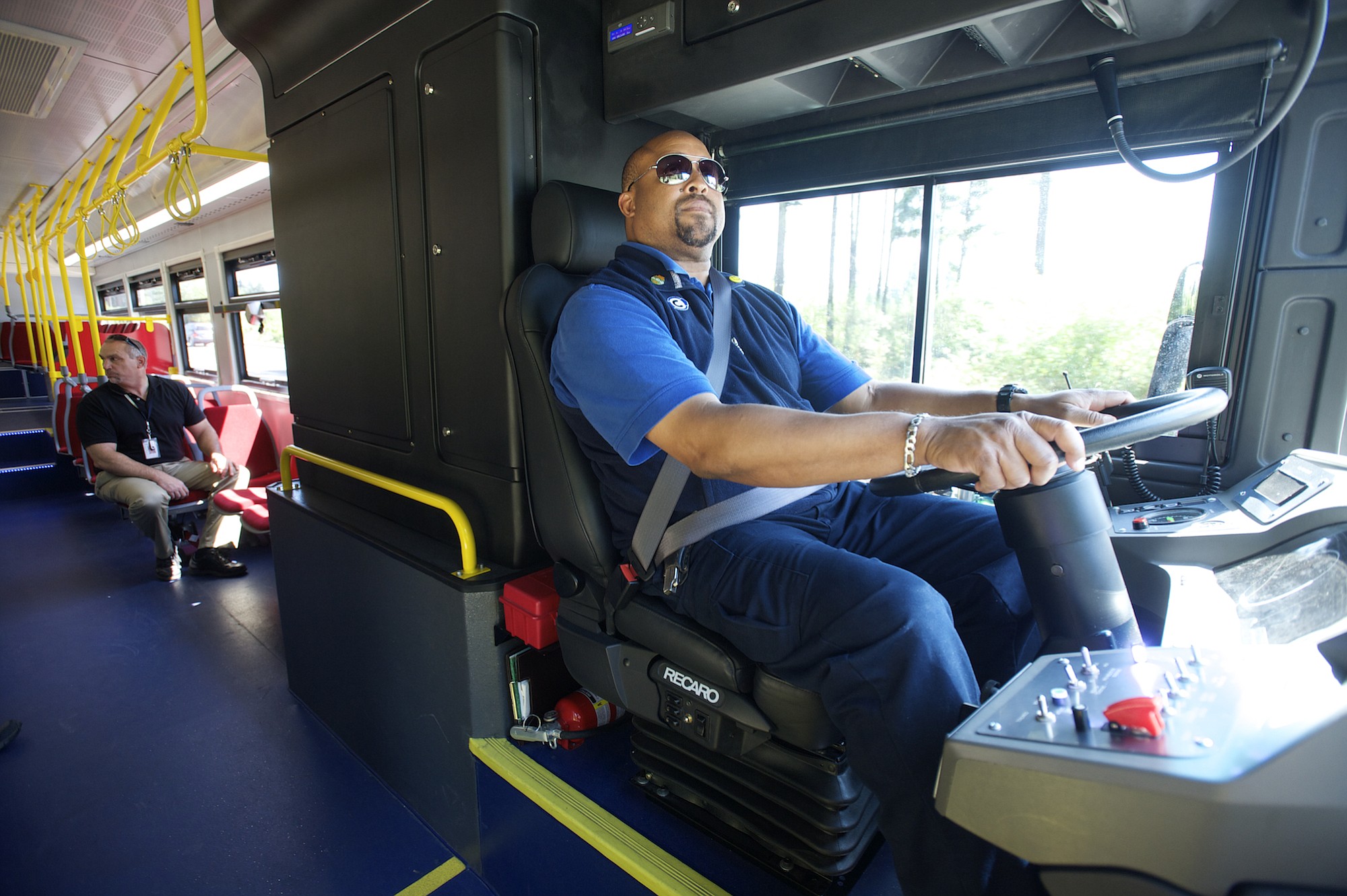An extended test drive this month will give some C-Tran riders a look at an all-electric bus.
C-Tran is trying a 40-foot vehicle built by Chinese company Build Your Dreams, or BYD. It has been in limited service since Aug. 1. C-Tran has used the battery-powered electric bus for its Clark County Fair shuttle, plus a handful of regular routes mostly around Vancouver. The demonstration will continue through Aug. 25, according to C-Tran.
Those lucky enough to catch the test bus will get a free ride. The vehicle isn’t equipped with a fare box.
C-Tran doesn’t have an all-electric bus in its current fleet, but the agency has applied for a federal grant to purchase one. While the technology has some limitations — a battery unit lacks the punch of a diesel or hybrid engine, for example — the BYD version so far has received mostly good reviews from C-Tran staff, said fleet maintenance manager Tim Shellenberger.
“It’s really amazing,” Shellenberger said. “In North America, this is really cutting-edge technology in terms of the application, especially in transit.”
C-Tran isn’t paying to use the BYD bus, said passenger service manager Jim Quintana. The company has offered it to numerous transit agencies looking for feedback, he said.
Not all of those tests have gone well. In June, TriMet reportedly pulled the plug on its own test drive after the agency couldn’t charge the batteries in the BYD bus it was using.
One of the drivers piloting the BYD bus for C-Tran is Larry Moore, a 24-year veteran with the agency. On a demonstration trip last week, Moore said the electric vehicle is smooth, comfortable and fairly easy to drive.
“Sometimes the acceleration is not as fast as your typical diesel buses,” Moore said. “Once it gets going, it’s fine.”
The bus emits a high-pitched hum as it gets up to speed. When the vehicle stops, it’s almost completely quiet.
The bus is powered by a lithium iron-phosphate battery system. A full charge, which takes about four hours, gives the vehicle a range of about 155 miles before it needs to plug in again. The bus produces zero air pollution emissions, according to BYD.
The electric bus seems best suited for flat, stop-and-go routes, Shellenberger said. Though its top speed is listed at 55 mph, the bus could only reach about 30 mph on the freeway recently with passengers on board and any incline. C-Tran has since stopped putting the bus on freeway routes.
The bus has mostly been used as an extra vehicle on urban routes including Nos. 32 (Hazel Dell), 71 (Highway 99), 72 (Orchards), 80 (Van Mall/Fisher’s Landing) and 92 (Camas/Washougal), among others. Putting an all-electric vehicle in the regular rotation would have to take range and charging needs into consideration, Shellenberger said.
“I think you’d have to be creative with your assignments,” he said.
C-Tran submitted a grant application to the Federal Transit Administration for $880,000, with a $220,000 C-Tran match, to purchase one all-electric bus plus related components and spare parts. A vehicle such as the BYD model costs about $810,000, Shellenberger said. Hybrid buses, which are part of C-Tran’s fleet, cost about $740,000 each, compared with about $550,000 for a regular diesel bus.




